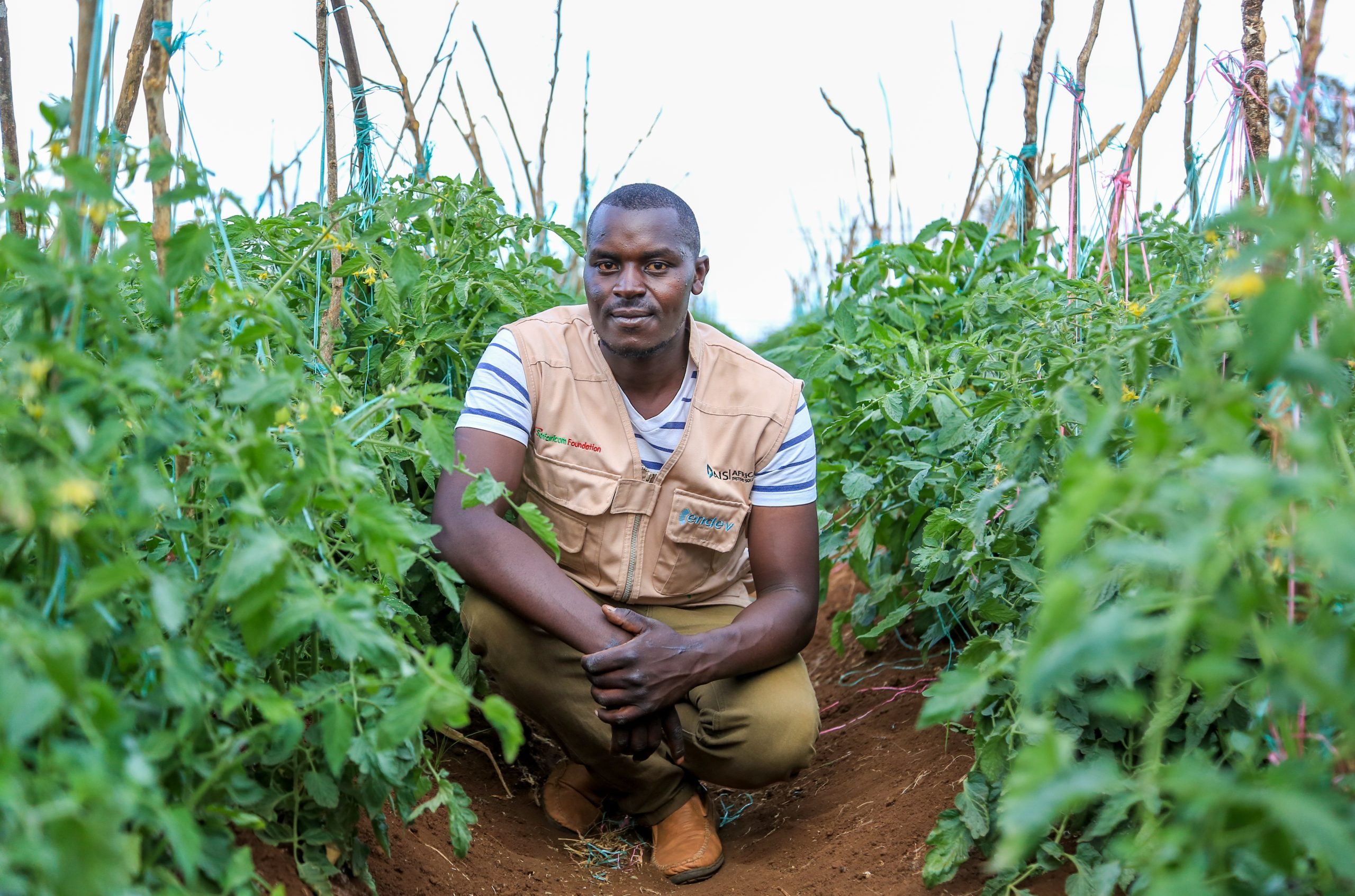
Agriculture is often seen as a traditional and labour-intensive sector, yet it holds immense potential for innovation, sustainability, and economic growth. At the heart of this transformation in Kenya is Kimani, the lead agronomist and project manager at Africa Instore Solutions (AIS). With a diploma in agriculture and a lifelong passion for farming, Kiman exemplifies the dedication and entrepreneurial spirit needed to inspire a new generation of young farmers.
How did he do it? And how is AIS advocating for youth involvement in agriculture?
A personal journey
Kimani’s journey into agriculture began at a young age. Fascinated by herding cattle, and sheep, rearing chickens, and working on the farm, he pursued his passion with determination. He self-educated through college using earnings from his quarter-acre farm, eggs, and goat sales, Kimani’s story is a testament to perseverance and self-reliance.
From his early days, Kimani showed a remarkable ability to turn challenges into opportunities. His hands-on experience with farming taught him the value of hard work, patience, and innovation. By the time he completed his diploma in agriculture, Kimani was not only knowledgeable but also deeply committed to the cause of transforming agriculture into a viable career option for the youth.
Challenges facing youth in agriculture
During an insightful interview, Kimani identified four major barriers that prevent youth from engaging in agriculture:
- Financial constraints: Many young people lack the initial capital to invest in farming. The high cost of inputs, such as seeds, fertilizers, and equipment, poses a significant hurdle.
- Lack of land: Most agricultural land is either owned by parents or available only for leasing, making it difficult for young people to secure land for farming.
- Low interest: Youth often prefer white-collar jobs over farming, driven by the perception that agriculture is less prestigious and financially rewarding.
- Market access: Difficulty in accessing markets for their produce discourages many young people from pursuing agriculture as a career.
AIS’s innovative solutions
AIS has tackled these challenges head-on through various initiatives aimed at youth empowerment. How has AIS done this? Initially, AIS leased land to 10 youth groups and provided end-to-end support. When this approach proved insufficient, AIS launched the Wezesha program.
The Wezesha Program
The Wezesha program offered comprehensive training covering Good Agricultural Practices (GAP), home economics, agribusiness, green energy, and advocacy. Beyond training, AIS provides ongoing extension services to support the youth in implementing what they have learned. The results have been remarkable:
- Leshan’s tomato seedlings greenhouses: A thriving example of innovation in agriculture, Leshan’s greenhouses have become a model for other young farmers.
- Gitau and Ndanu’s poultry businesses: Successful ventures showcasing sustainable farming practices and the potential for profitability in poultry farming.
- Youth-led training initiatives: Groups are now training peers in home economics and green energy, creating a ripple effect of knowledge and skills within the community.
Impact and success
The Wezesha program has trained over 2,300 farmers, with more than 70% adopting sustainable agricultural practices. These statistics highlight the program’s effectiveness in empowering youth and promoting sustainability. By providing the necessary training and support, AIS has enabled young farmers to overcome the barriers they face and achieve success in agriculture.
The success stories from the Wezesha program are a testament to the potential of youth in agriculture. Leshan’s tomato greenhouses, Gitau’s poultry business, and the youth group training others in home economics and green energy are just a few examples of how young people are transforming their communities through agriculture.
Future plans
AIS continues to expand its support for youth in agriculture. Upcoming projects include:
- Sorghum Project: Engaging over 200 youths in sorghum farming. This project aims to provide training and support for young farmers, helping them to establish profitable sorghum farming enterprises.
- Sunflower Production Project: Aiming to train over 1,000 youths, create employment opportunities at the production center, and offer direct market access and support. This project will not only create job opportunities but also promote the cultivation of sunflowers, a valuable cash crop with numerous uses.
Kimani’s advice to the youth
Kimani emphasizes that agriculture is an enduring field, essential for human sustenance. He advises young people to explore the diverse opportunities within agribusiness, noting that one doesn’t have to engage in traditional farming to be part of the agricultural sector. He believes the youth are the future of agriculture and can lead the way in innovation and sustainability.
Kimani’s advice to the youth is rooted in his own experiences and successes. He encourages young people to look beyond the conventional image of farming and consider the various roles and opportunities available within the agricultural value chain. From agribusiness and technology to marketing and advocacy, there are numerous ways for young people to contribute to and benefit from the agricultural sector.
Conclusion
Kimani’s passion and AIS’s initiatives are driving a new wave of youth engagement in agriculture. By addressing financial constraints, land access, interest, and market access, AIS is creating pathways for young people to thrive in the agricultural sector. With continued support and innovative programs, the future of agriculture in Kenya looks promising, driven by the energy and ingenuity of its youth.
The journey of Kimani and AIS serves as an inspiring example of how targeted interventions and unwavering commitment can transform agriculture into a viable and attractive career for young people. As more youth embrace agriculture, they will play a crucial role in ensuring food security, promoting sustainability, and driving economic growth in Kenya and beyond.
In summary, the story of Kimani and AIS is one of passion, perseverance, and progress. It highlights the importance of empowering youth in agriculture and showcases the remarkable impact that dedicated individuals and organizations can have on the future of farming. Through initiatives like the Wezesha program and upcoming projects, AIS is not only addressing the challenges faced by young farmers but also paving the way for a brighter and more sustainable agricultural future.
